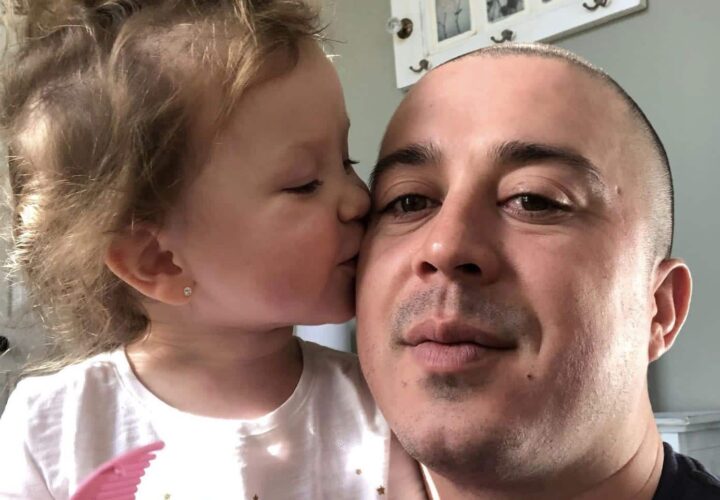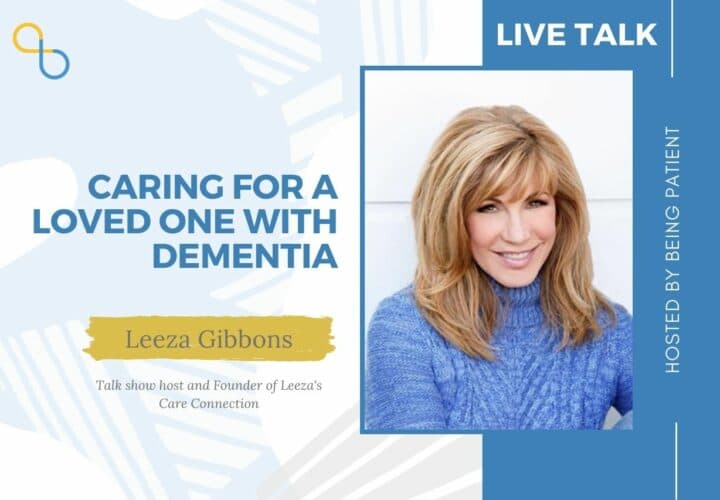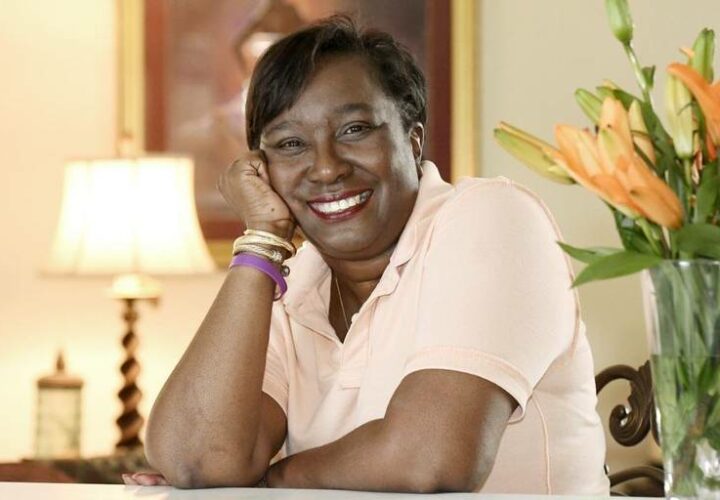Sheri Yarbrough, 60, has been a caregiver for her mother for the past 11 years, but their relationship hasn’t always been easy. Yarbrough has since advocated for those navigating their relationships alongside a dementia diagnosis.
This article is part of the series Diversity & Dementia, produced by Being Patient with support provided by Eisai.
Sheri Yarbrough sat across from her parents in her first little apartment in Atlanta, Georgia. She was 24, recently graduated from Spelman College with a B.A. in political science, and unlike her siblings, she still was working toward her future career. Yarbrough looked at her parents and realized they were aging, and that when she got older, she would be responsible for her parents’ care — if they ever were to need it.
“I thought that I would see their aging coming, and there would be this regal fanfare and I would step into my new role,” Yarbrough told Being Patient, reminiscing on that prescient day. “Well, 25 years later, I went [with my mother] to a routine doctor’s appointment and was told that my mother was in the early stages of dementia and couldn’t live by herself anymore, and I needed to be there.”
Yarbrough received her Ph.D from the University of Illinois at Urbana-Champaign and worked as an ethnographer and policy analyst for nonprofit agencies in order to assist in management strategies, and was a professor at the City Colleges of Chicago. While working as a change management consultant, she learned of her mom’s diagnosis.
Dementia was a daunting enough prospect, but for Yarbrough that was compounded by the fact that her relationship with her mother wasn’t the greatest. They got along best when they lived in separate places, or had different “lairs,” as she put it. In order to navigate this new arrangement, she had to dig deep within herself to see the bigger picture.
“I learned that I have to be forgiving of both of us so I can get our past out of the way in order to deal with what we’re experiencing right now in order to make good decisions going forward,” she said.
Yarbrough’s idea of caregiving shifted an otherwise terrifying reality into a positive outlook on life experiences. Her book “Omg! I’m the Grown-Up! A Conversation on Giving Care to a Loved One and Yourself,” takes her own stories and practices and tries to teach others what it’s like to become a parent to a parent.
In her book, she utilizes “the praxis of care,” which focuses on three dynamics of caregiving: forgiveness, patience and acceptance. Yarbrough describes caregiving as a teeter totter, because it is a constant push and pull between the caregiver and patients’ needs.
In this back and forth however, she said there must be an anchor point that helps the see-saw balance and that happens only when there is an understanding of fundamental values. There is honor, which maintains value in a relationship; trust, to ensure there is honesty between both parties; and respect, to ensure fair treatment of everyone involved.
“One of my goals is to really start changing the face of dementing illnesses, and the more we talk about it, we’re always hearing the bad part,” Yarbrough said.
“I’m not saying there isn’t [a bad part], but I think that’s what keeps people so afraid,” she added. “[They’re] not really understanding how you can use your usual [personality] and use the fundamental characteristics of that person to make this disease and this journey manageable.”
***
Yarbrough’s mother went to a doctor known to the family and was a Morehouse College graduate like her father, and without his encouragement, she said she may never have been able to provide the caliber of care she now does due to their past relationship.
“[His push] threw me into a trajectory that helped me grow a lot as a person,” she said.
Their family doctor assisted Yarbrough through the next steps for her mother’s care, but for other people of color in underrepresented healthcare communities, this is not always the case.
Distrust of the healthcare system is deeply entrenched in American communities of color. American history is riddled with stories of exploitation dating back to slavery and forward to the 20th century, and many advocates feel that little has been done to regain that trust. According to a 2020 poll, 20 percent of all Black American adults surveyed felt they were treated unfairly when receiving health care due to their race and ethnic background — 15 percent of men, 25 percent of women and 37 percent of Black mothers.
Lack of trust is a problem especially because healthcare is needed more than ever by this community, and these issues of unfair treatment and mistrust of the healthcare system in communities of color are disproportionately high and, especially with the world in the throes of a public health crisis, becoming increasingly urgent to address.
It is at least 14 percent more common for Black Americans to be diagnosed with Alzheimer’s, and other assessments believe their risk is almost twice as high as whites. This discrepancy is attributed in part to public health factors including lack of access to healthcare, and related to that, increased risk of high blood pressure, high cholesterol and diabetes — all risk factors of Alzheimer’s disease.
***
As a woman of color, Yarbrough maintained that there are many misconceptions of degenerative brain disorders, and that the common idea that their “brains are mush” is an unfair way to describe the disease, and rather to shift the understanding into “they actually have lost the capacity to process, store and retrieve information.”
To better share this way of thinking, aside from her book, Yarbrough has created a start-up business, Praxis Senior Care-Giving Solutions, a service delivery business that helps caregivers find easily applied caregiving approaches while addressing how to navigate interpersonal relationships and provide care.
“Everybody doesn’t get everything,” Yarbrough said. “It’s a highly individualized set of diseases. It’s really important to understand that person, and how that person is navigating this disease as it progresses.”
“I’m just building a business because I realized that I’m not probably not alone in having this experience,” she added.
Throughout her experiences, Yarbrough has learned that those caring for their loved ones may know them better than health care professionals, and it would be beneficial to create a more open and honest line of communication.
At some points, every family member would desire to have the loved one they knew before their diagnosis, but Yarbrough says it is necessary for medical professionals to listen to loved ones, not discount information from them.
“I’m not going to argue with you and I’m not going to [discount] your professionalism,” Yarbrough said, reflecting on times she wanted to take her mother out of health care professionals hands and into her own. “But if you can’t do it it’s not a problem, let’s put her where we can get it done.”
Yarbrough said that this diagnosis has taught her how to live, and just view life in a different light. She compares a dementia diagnosis to a box of chocolates, because you’ll never know what you’re going to get.
“Dementia has made me realize something,” Yarbrough said, giving insight into how she changed the way she looked at life and her mother’s happiness. “She can only process information in the moment. She was always a worrier, so she can’t worry anymore and can’t worry about what’s going to happen. She can’t regret what she’s done. She can only live in this moment right here, right now and if something’s not good in this moment, we address it because life moves on.”
“It’s a shame to me that it’s the presence of this horrible disease [that] help[ed] me learn how to live in the moment,” she added. “I guess it makes it bittersweet, but that’s a very beautiful way to look at it.”



